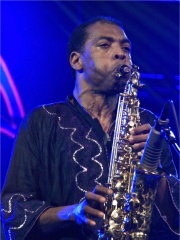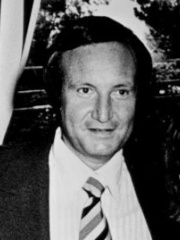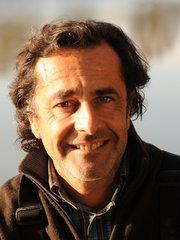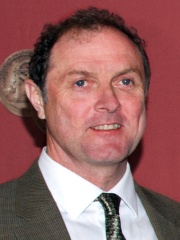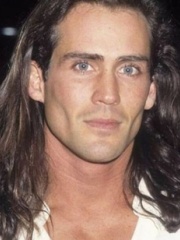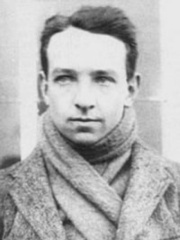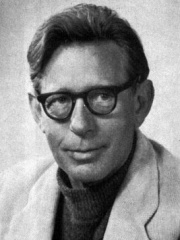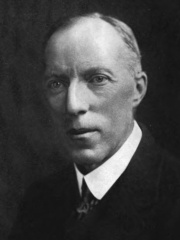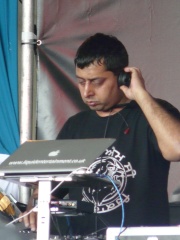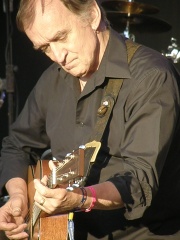Musician
Femi Kuti
1962 - today
 Femi Kuti
Femi Kuti
Olufela Olufemi Anikulapo Kuti (born 16 June 1962), popularly known as Femi Kuti, is a Nigerian musician born in London and raised in Lagos. He is the eldest son of Afrobeat pioneer Fela Kuti and a grandchild of political campaigner, women's rights activist and traditional aristocrat Funmilayo Ransome-Kuti. Femi Kuti began his musical career playing in his father's band, Egypt 80. In 1986, Femi started his own band, Positive Force, establishing himself as an artist independent of his father's legacy. Read more on Wikipedia
His biography is available in 21 different languages on Wikipedia (up from 20 in 2024). Femi Kuti is the 2,686th most popular musician (up from 2,687th in 2024), the 6,639th most popular biography from United Kingdom (down from 6,565th in 2019) and the 429th most popular British Musician.
Memorability Metrics
Page views of Femi Kuti by language
Among Musicians
Among musicians, Femi Kuti ranks 2,686 out of 3,175. Before him are Amon Tobin, Noel Hogan, Nikolaj Koppel, Agnete Johnsen, Mike Ness, and Philippe Jordan. After him are Don Kirshner, Jon Schaffer, Ólafur Arnalds, Jody Watley, Potap, and Tom Robinson.
Most Popular Musicians in Wikipedia
Go to all RankingsAmon Tobin
1972 - Present
HPI: 46.67
Rank: 2,680
Noel Hogan
1971 - Present
HPI: 46.64
Rank: 2,681
Nikolaj Koppel
1969 - Present
HPI: 46.64
Rank: 2,682
Agnete Johnsen
1994 - Present
HPI: 46.62
Rank: 2,683
Mike Ness
1962 - Present
HPI: 46.62
Rank: 2,684
Philippe Jordan
1974 - Present
HPI: 46.61
Rank: 2,685
Femi Kuti
1962 - Present
HPI: 46.61
Rank: 2,686
Don Kirshner
1934 - 2011
HPI: 46.60
Rank: 2,687
Jon Schaffer
1968 - Present
HPI: 46.60
Rank: 2,688
Ólafur Arnalds
1986 - Present
HPI: 46.59
Rank: 2,689
Jody Watley
1959 - Present
HPI: 46.58
Rank: 2,690
Potap
1981 - Present
HPI: 46.55
Rank: 2,691
Tom Robinson
1950 - Present
HPI: 46.54
Rank: 2,692
Contemporaries
Among people born in 1962, Femi Kuti ranks 829. Before him are Nicolas Vanier, Kim Ki-taik, Phedon Papamichael, Boris McGiver, Anelia Nuneva, and Mike Ness. After him are Joe Lara, Juan Bautista Hernández Pérez, Mark Arm, Kajsa Ernst, Ihor Podolchak, and Dean Devlin.
Others Born in 1962
Go to all RankingsNicolas Vanier
WRITER
1962 - Present
HPI: 46.78
Rank: 823
Kim Ki-taik
TABLE TENNIS PLAYER
1962 - Present
HPI: 46.75
Rank: 824
Phedon Papamichael
FILM DIRECTOR
1962 - Present
HPI: 46.74
Rank: 825
Boris McGiver
ACTOR
1962 - Present
HPI: 46.69
Rank: 826
Anelia Nuneva
ATHLETE
1962 - Present
HPI: 46.64
Rank: 827
Mike Ness
MUSICIAN
1962 - Present
HPI: 46.62
Rank: 828
Femi Kuti
MUSICIAN
1962 - Present
HPI: 46.61
Rank: 829
Joe Lara
ACTOR
1962 - 2021
HPI: 46.58
Rank: 830
Juan Bautista Hernández Pérez
ATHLETE
1962 - Present
HPI: 46.58
Rank: 831
Mark Arm
SINGER
1962 - Present
HPI: 46.58
Rank: 832
Kajsa Ernst
ACTOR
1962 - Present
HPI: 46.56
Rank: 833
Ihor Podolchak
FILM DIRECTOR
1962 - Present
HPI: 46.55
Rank: 834
Dean Devlin
FILM DIRECTOR
1962 - Present
HPI: 46.55
Rank: 835
In United Kingdom
Among people born in United Kingdom, Femi Kuti ranks 6,641 out of 8,785. Before him are Humza Yousaf (1985), Siobhan Dowd (1960), Adrian Alston (1949), Bertie Auld (1938), Thomas Sopwith (1888), and 21 Savage (1992). After him are Ray Parlour (1973), Christine Truman (1941), Peter Sillett (1933), Gary Pallister (1965), Laurie Lee (1914), and Rob Edwards (1982).
Others born in United Kingdom
Go to all RankingsHumza Yousaf
POLITICIAN
1985 - Present
HPI: 46.66
Rank: 6,635
Siobhan Dowd
WRITER
1960 - 2007
HPI: 46.65
Rank: 6,636
Adrian Alston
SOCCER PLAYER
1949 - Present
HPI: 46.65
Rank: 6,637
Bertie Auld
SOCCER PLAYER
1938 - 2021
HPI: 46.64
Rank: 6,638
Thomas Sopwith
ENGINEER
1888 - 1989
HPI: 46.63
Rank: 6,639
21 Savage
SINGER
1992 - Present
HPI: 46.62
Rank: 6,640
Femi Kuti
MUSICIAN
1962 - Present
HPI: 46.61
Rank: 6,641
Ray Parlour
SOCCER PLAYER
1973 - Present
HPI: 46.60
Rank: 6,642
Christine Truman
TENNIS PLAYER
1941 - Present
HPI: 46.60
Rank: 6,643
Peter Sillett
SOCCER PLAYER
1933 - 1998
HPI: 46.60
Rank: 6,644
Gary Pallister
SOCCER PLAYER
1965 - Present
HPI: 46.59
Rank: 6,645
Laurie Lee
WRITER
1914 - 1997
HPI: 46.59
Rank: 6,646
Rob Edwards
COACH
1982 - Present
HPI: 46.57
Rank: 6,647
Among Musicians In United Kingdom
Among musicians born in United Kingdom, Femi Kuti ranks 429. Before him are Michael Kiwanuka (1987), Jools Holland (1958), Cecil Sharp (1859), Pete Shelley (1955), Tim Rice-Oxley (1976), and Jacob Collier (1994). After him are Tom Robinson (1950), Panjabi MC (1973), Martin Carthy (1941), Pete Willis (1960), Vernon Reid (1958), and Pete Trewavas (1959).
Michael Kiwanuka
1987 - Present
HPI: 47.42
Rank: 423
Jools Holland
1958 - Present
HPI: 47.15
Rank: 424
Cecil Sharp
1859 - 1924
HPI: 47.04
Rank: 425
Pete Shelley
1955 - 2018
HPI: 46.88
Rank: 426
Tim Rice-Oxley
1976 - Present
HPI: 46.76
Rank: 427
Jacob Collier
1994 - Present
HPI: 46.74
Rank: 428
Femi Kuti
1962 - Present
HPI: 46.61
Rank: 429
Tom Robinson
1950 - Present
HPI: 46.54
Rank: 430
Panjabi MC
1973 - Present
HPI: 46.49
Rank: 431
Martin Carthy
1941 - Present
HPI: 46.34
Rank: 432
Pete Willis
1960 - Present
HPI: 46.22
Rank: 433
Vernon Reid
1958 - Present
HPI: 46.14
Rank: 434
Pete Trewavas
1959 - Present
HPI: 46.14
Rank: 435
